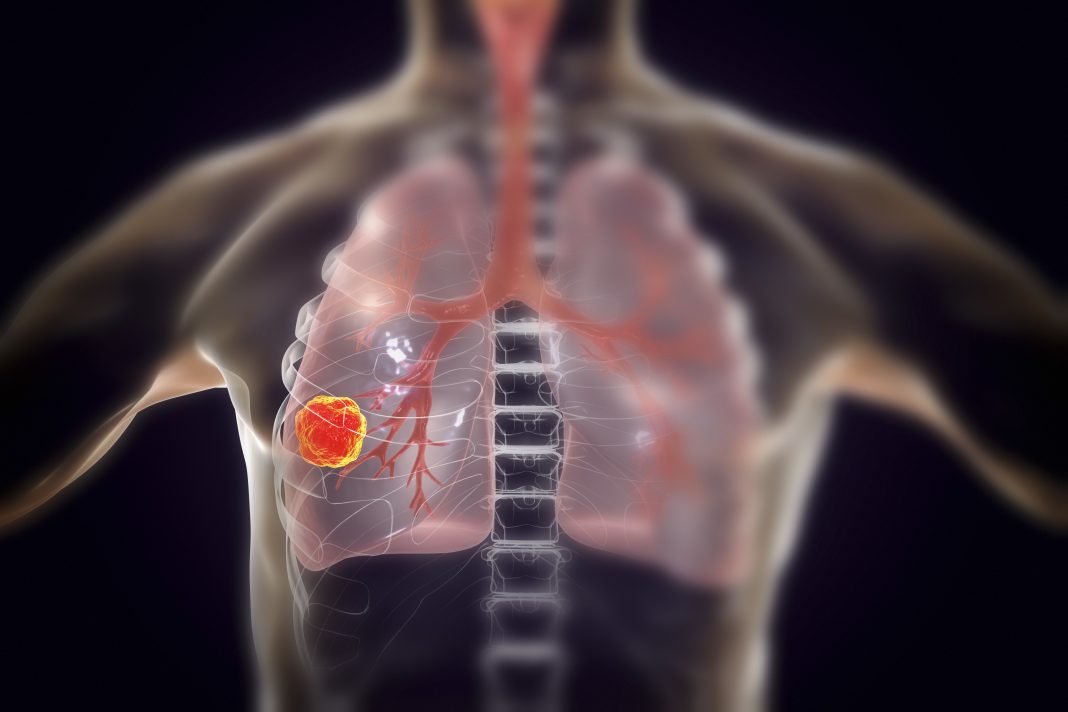A potential new therapeutic approach to treating non-small-cell lung cancer has been developed by researchers at the Icahn School of Medicine at Mount Sinai.
The findings are published in the journal Nature Immunology in an article titled, “TREM2 macrophages drive NK cell paucity and dysfunction in lung cancer.”
“Natural killer (NK) cells are commonly reduced in human tumors, enabling many to evade surveillance,” the researchers wrote. “Here, we sought to identify cues that alter NK cell activity in tumors. We found that, in human lung cancer, the presence of NK cells inversely correlated with that of monocyte-derived macrophages (mo-macs). In a murine model of lung adenocarcinoma, we show that engulfment of tumor debris by mo-macs triggers a pro-tumorigenic program governed by triggering receptor expressed on myeloid cells 2 (TREM2).”
“Our study reveals that macrophages expressing the molecule TREM2 drive the depletion and dysfunction of effector immune cells called natural killer cells, known to play a key role in the elimination of cancer cells, providing a strong rationale for the clinical development of combination therapies that concurrently block TREM2 and boost natural killer cells,” said first author Matthew Park, an MD/PhD candidate in the lab of Miriam Merad, MD, PhD, senior author of the study.
During tumor progression, the researchers found that bone marrow macrophages act to suppress the recruitment and activation of natural killer cells. To learn why these macrophages have this effect, the research team performed sequencing to determine what genes may be at play, implicating the TREM2 molecule as highly expressed.
The researchers discovered that inhibiting TREM2 activity using either mice with this mutation or blocking it from binding with an antibody significantly reduced lung tumor growth in mice.
“We identified a novel axis of immunity, whereby TREM2-expressing macrophages regulate the recruitment and activity of natural killer cells during lung tumor progression, and showed preclinical evidence for a new therapeutic strategy that combines TREM2 blockade and natural killer cell activation using an antibody developed by Ferrari de Andrade,” said Merad.
Dual targeting of macrophages and NK cells represents a new strategy to boost antitumor immunity. The findings may pave the way for treating lung cancer and other cancers in the future.


